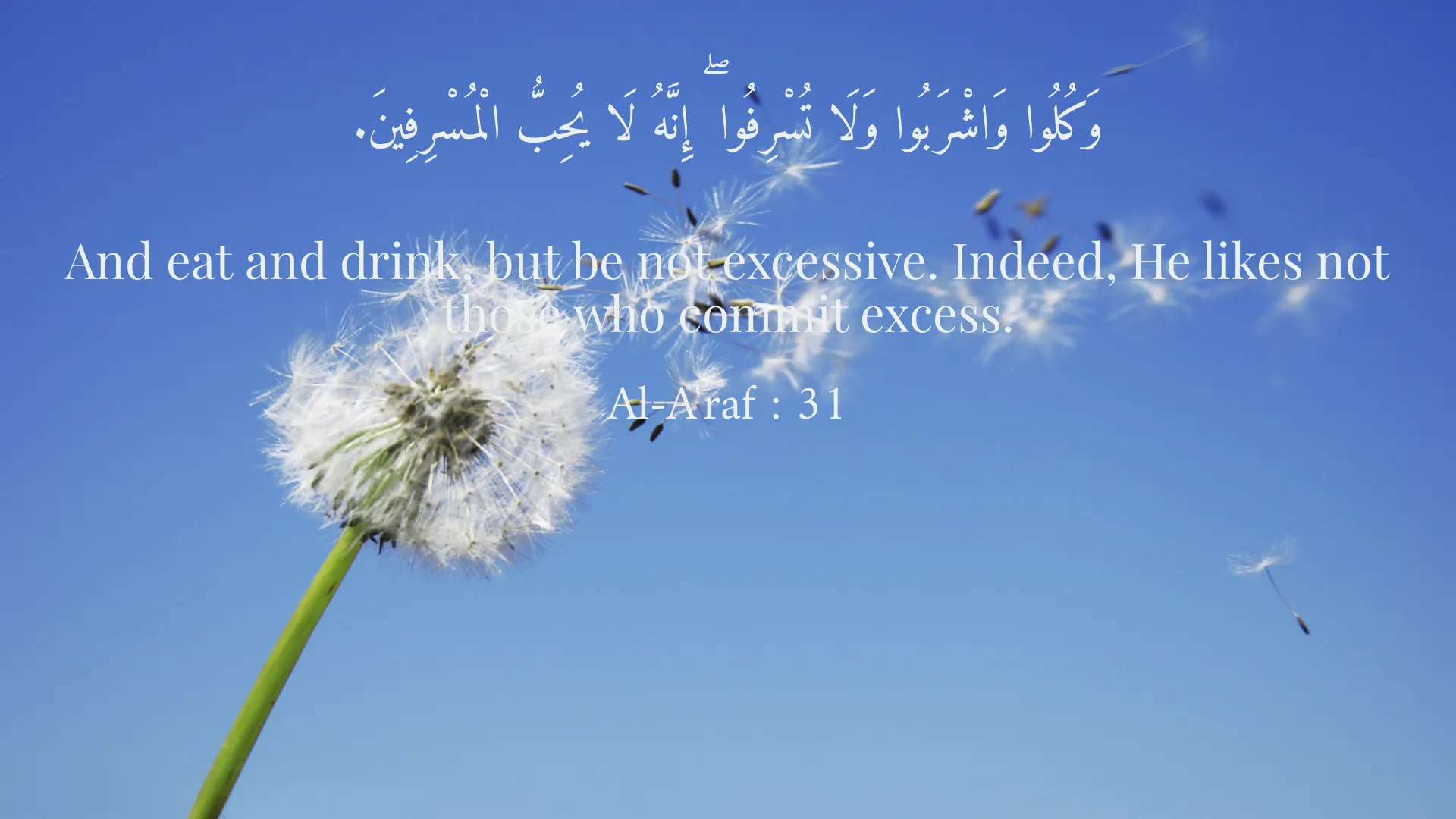Quranic Answer

The Holy Quran, regarded as the ultimate source of guidance for humanity, offers profound wisdom on various aspects of life, including the significance of moderation and the avoidance of extravagance. This concept of moderation is interwoven throughout the Quran’s teachings, encouraging believers to lead balanced lives by refraining from excessiveness in all forms. The verses of the Quran serve as a powerful reminder of the importance of maintaining equilibrium in our consumption and lifestyle choices. Extravagance, defined as an excessive use of resources or living beyond one's means, can lead to detrimental effects on both individuals and societies. It fosters an unsustainable lifestyle that contributes to wastefulness, environmental degradation, and social inequality. Recognizing the potential harm that comes from extravagance, the Holy Quran implores individuals to be mindful of their consumption patterns, emphasizing that moderation is not only a virtue but also a spiritual obligation. One of the most insightful verses addressing this issue is found in Surah Al-A'raf, verse 31, which states, "And eat and drink, but be not excessive. Indeed, He likes not those who commit excess." This directive serves as a straightforward instruction for believers, promoting the idea that it is fundamentally important to practice moderation in one's diet and drink. This not only applies to food and beverages but extends to all areas of consumption including clothing, housing, and entertainment. The essence of this teaching is to nurture a sense of responsibility towards the resources Allah has provided, encouraging individuals to appreciate these blessings without falling into the trap of wastefulness. Furthermore, Surah Al-Isra, verse 27, states, "Indeed, the wasteful are brothers of the devils, and ever has Satan been to his Lord ungrateful." This verse powerfully correlates extravagance with devilish behavior, creating a stark warning for those who indulge in wastefulness. The Quran emphasizes that extravagance not only has physical and environmental repercussions but also spiritually distances individuals from their Creator. Excessive behavior can serve as a manifestation of ingratitude towards the divine provisions bestowed upon humanity, leading one to disregard the foundational principles of faith and morality. Thus, the Quran regards wastefulness as a severe deviation from the righteous path. The theme of moderation in the Quran is not only limited to physical consumption; it also encompasses attitudes towards wealth and social responsibilities. The Quran encourages believers to view their material possessions as blessings that come with responsibilities. This sense of duty occurs through a practice of giving to those in need, ensuring that wealth is not hoarded or squandered but is channels towards societal well-being and welfare. In Surah Al-Baqarah, verse 267, Allah commands, "O you who have believed, spend from the good things which you have earned and from that which We have produced for you from the earth. And do not aim for the bad to spend from it, while you would not take it except with closed eyes." This instruction reinforces the idea that even in charitable giving, one must not be extravagant. It suggests that believers should offer what is good and beneficial, rather than what is surplus or undesirable. This perspective helps cultivate a deep-seated respect for the blessings one has received and promotes the notion of communal responsibility in wealth distribution. Moreover, the Quran highlights the necessity of recognizing that the resources available to humanity are not limitless, thereby underscoring the importance of sustainability. This call to action is particularly relevant in today’s context, where issues surrounding climate change, resource depletion, and social inequality are at the forefront of global discourse. By discouraging extravagance, the Quran inherently promotes ecological balance and stewardship over the earth’s resources, which can lead to sustainable living practices essential for future generations. It's also crucial to mention that moderation extends beyond personal consumption and individual behavior into social dealings and interpersonal relationships. The Quran advocates for a balanced approach in every aspect of life, reinforcing the importance of justice, fairness, and compassion. In the context of family, work, and community relations, embracing moderation fosters harmony, reduces conflict, and contributes to a flourishing society. In summary, the Holy Quran offers profound guidance on the concept of moderation, mandating believers to avoid extravagance in all facets of life. Through its verses, it outlines the principles of balanced consumption, wealth accountability, and social responsibility, encouraging individuals to recognize and respect the divine blessings afforded to them. Ultimately, refraining from extravagance is a demonstration of gratitude, responsibility, and a means to cultivate a life that aligns with the values of faith and righteousness. This call to moderation is not merely a directive; it is a pathway toward achieving personal fulfillment and contributing to the well-being of society and the planet as a whole.
Related Verses
وَكُلُوا وَاشْرَبُوا وَلَا تُسْرِفُوا ۖ إِنَّهُ لَا يُحِبُّ الْمُسْرِفِينَ.
And eat and drink, but be not excessive. Indeed, He likes not those who commit excess.
Al-A'raf : 31
إِنَّ الْمُبَذِّرِينَ كَانُوا إِخْوَانَ الشَّيَاطِينِ ۖ وَكَانَ الشَّيْطانُ لِرَبِّهِ كَفُورًا.
Indeed, the wasteful are brothers of the devils, and ever has Satan been to his Lord ungrateful.
Al-Isra : 27
Short Story
Once upon a time, a motivated young man named Adel was sitting by the sea, admiring the beauty of God's creation. He felt grateful in his heart and remembered the verses of the Quran regarding refraining from extravagance. He decided to approach the blessings in his life with more mindfulness and respect. He learned to spend wisely rather than excessively and began helping others as well. With this change in perspective, not only did he feel more fulfilled, but his friends also admired his lifestyle and joined him.